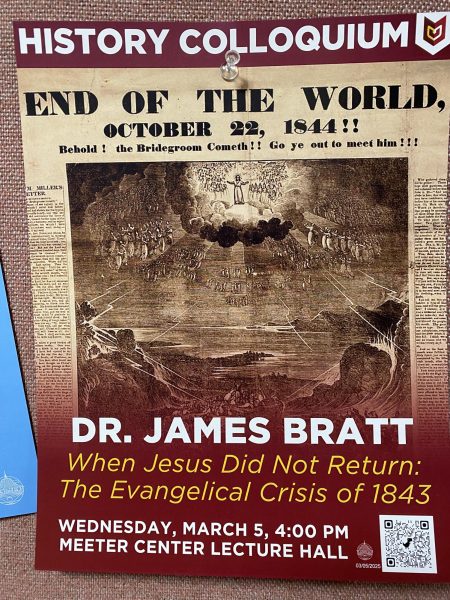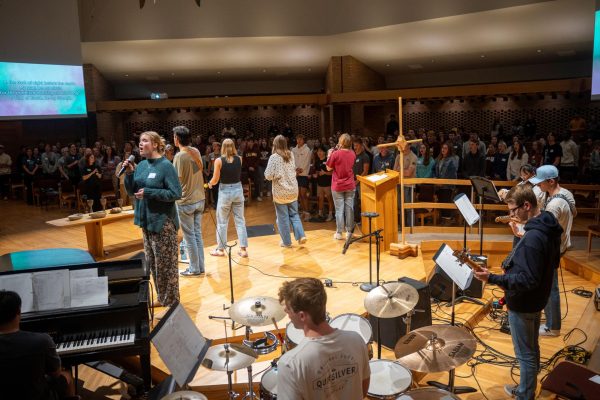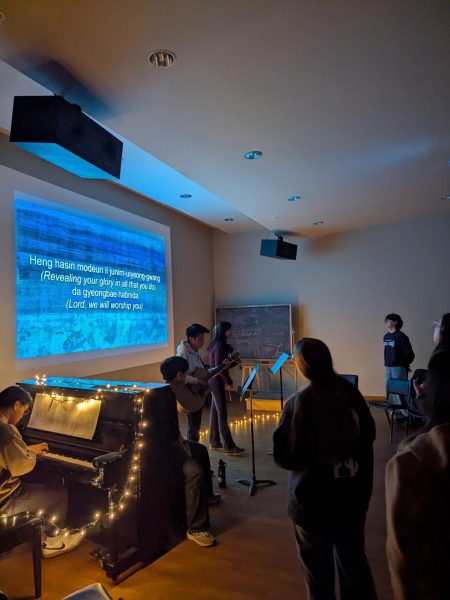Synod 2015 to include overture against East Grand Rapids churches
This year’s Synod of the Christian Reformed Church in North America (CRCNA) will be held from June 12 to 18 at Dordt College in Sioux Center, Iowa.
The annual meeting of the denomination’s governing body includes church policy decisions, organizational changes and concerns brought by groups of churches.
Synod comprises two ministers and two elders from each of the denomination’s 48 classes, for a total of 192 delegates.
Synod also considers overtures, or requests for action, made by groups of churches.
One of this year’s overtures, brought forward by Classis Minnkota (which includes churches in Minnesota, South Dakota, North Dakota and Michigan), addresses the actions of a group of church members in Classis Grand Rapids East called All One Body.
All One Body is a Grand Rapids-based non-profit organization whose mission is to promote “the unrestricted membership and full participation in all dimensions of church life by all persons who confess Christ as their Savior and Lord […] including those who are lesbian, gay, bisexual or transgender.”
According to Classis Minnkota’s overture, All One Body has been “aided specifically” by Eastern Avenue CRC and Calvin CRC, both in Classis Grand Rapids East. The churches provided the group with meeting space, and several of All One Body’s leadership members have spoken at the churches.
Classis Minnkota requests that Synod instruct these churches “to exercise discipline with respect to those in their congregations who are advocating homosexual practice.”
Eric Kamstra, a delegate from Monroe Community CRC and manager of annual fund special programs at Calvin, is on the Synod committee that will be discussing the Minnkota overture as well as six others.
“It’s always difficult when you have someone pointing a finger at someone else,” Kamstra said. “There’s a wide variety of beliefs even within the same denomination.”
Regardless of the eventual decision, Kamstra thinks its an important part of the denominational structure that churches can hold each other accountable.
Kamstra mentioned that, in a time when the CRC’s membership is declining, one question he hopes to weigh in on at Synod is why church attendance is low among millennials.
For some, Kamstra said, worship has become more of an “a la carte” event, where dozens of sermons and hundreds of worship teams are just a few clicks away.
The centuries of church tradition represented by Synod — and especially the rules and policies that go along with that — may be part of the reason millennials leave the church, Kamstra said.
Important Synodical decisions in the last few years include partially adopting the Belhar Confession in 2012, refusing in 2014 to create a committee to study questions about the Genesis creation account and approving a study that will give guidance and clarification to the churches regarding civil same-sex marriage. That committee will present its report next year at Synod 2016.
As a relatively young delegate and newcomer to Synod, Kamstra is excited to be a part of the decisions that have affected him throughout his life as a Calvin alumnus and CRC church member.
Looking toward the future of the denomination, Kamstra explained the main questions that he will try to help answer:
“Are there ways that the CRC needs to understand how to be more arms wide open? Or is it right where it wants to be and okay with maintaining some of the rules and regulations because it’s firm in its interpretations?”
Correction: Classis Minnkota is made up of churches from South Dakota, North Dakota, Minnesota and Michigan, not Montana and South Dakota, as was originally stated. Additionally, this article originally stated a recent committee has been tasked with studying the denomination’s stance on homosexuality. The committee’s mandate is to give guidance and clarification to the churches regarding civil same-sex marriage.






